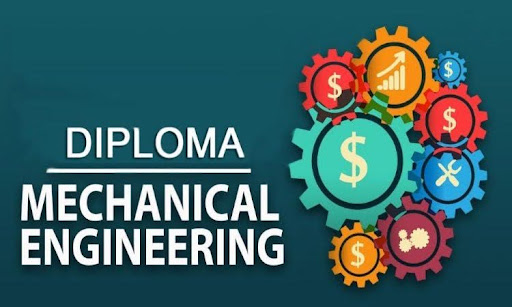Mechanical engineering is often associated with machines, motion, and mechanics. However, getting a diploma in mechanical engineering is more than theoretical study: it is one step beyond textbook learning. Here, you can get early entry into the technical field. This diploma acts as a stepping stone through which an applicant can gain hands-on work experience. It does not just convey simple mechanical knowledge but also tells you how to practically embed that knowledge. Sigma University follows a simple method mixing book knowledge with real hands-on work so that students are ready for real engineering jobs.
Why a Diploma Stands Out
A diploma in mechanical engineering is the initial gateway into the fascinating world of innovation, design, and problem-solving, at the junction of theories and applications with basic knowledge and real-world implementation. This balance makes the diploma unique because the students acquire concepts with the hands-on skills essential in the industry
Learning by Doing
In general, an academic degree usually takes years to be accepted at a theoretical and conceptual level. However, a diploma provides exposure to hands-on learning from the beginning. The core subjects, such as material mechanics, thermodynamics, CAD, and engineering materials, are learned and applied during workshops and laboratories and sometimes in real-life cases and projects. This applied diploma sets itself apart from normal diplomas in that you do not simply learn the formula; you may also feel what it is like when something works or when it does not.
Work-Ready Skills Employers Value
This experience is critical. Gone are the days when you worked from sketches all by yourself. Today, industries want people who can read a drawing, build a machine, and then go and fix the machine when it stops working. The diploma should make one into that person.
Early Career Opportunities
Entering the job market with a diploma is often seen as a smart and practical advantage for many individuals. Before taking this path, it is important to get a copy of your high school diploma, as it serves as a foundational requirement for further technical education and employment opportunities. Many students choose a diploma route because it allows them to transition into the workforce more quickly.
Diploma holders commonly secure roles such as technicians, junior engineers, or machine operators across a range of industries. Their hands-on training equips them with the skills needed to keep systems running efficiently in fields like manufacturing, automotive production, energy, and aviation. With strong practical exposure, diploma holders are often well-prepared to solve real-world technical problems, sometimes more effectively than those whose education has been limited to classroom-based theory alone.
Pathways to Growth
Most diploma-holders and people who choose to pursue engineering studies either part-time or through lateral entry to engineering colleges. Generally, with prior practical training and good fundamental knowledge, students possess an advantage over the newer students and excel equally in academics and professional careers.
Flexibility and Affordability
This route offers flexibility and adaptability. Some students do not prefer committing to the duration of four years and the academic pressure of such theoretical programs. For others, financial constraints may limit their options. A diploma allows students to earn and continue learning and growing practically in relevant applications in their field.
Conclusion
In short, opting for a diploma in mechanical engineering does not mean taking a shortcut; in fact, it is a straight route to your destination. It is a sector where entrepreneurs and problem-solvers thrive. Indeed, there are better routes for an apprenticeship nowadays, ruled increasingly by machines and technology, than a diploma in Mechanical Engineering.

































